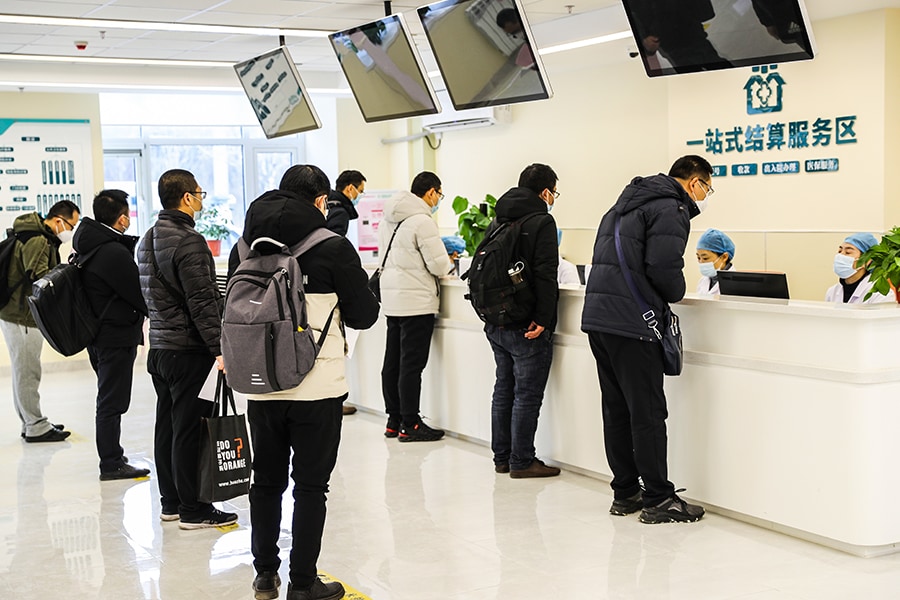
A second Chinese Coronavirus vaccine is said to be effective
Officials in the state of São Paulo, where a prominent medical research institute carried out a large study of the vaccine made by the Beijing-based Sinovac, said the inoculation had an efficacy rate of 78%.
 QINGDAO, CHINA - JANUARY 05 2021: People line up to register for the SARS-CoV-2 inoculation at a community health station in Qingdao in east China's Shandong province Tuesday, Jan. 05, 2021.
QINGDAO, CHINA - JANUARY 05 2021: People line up to register for the SARS-CoV-2 inoculation at a community health station in Qingdao in east China's Shandong province Tuesday, Jan. 05, 2021.
Image: Feature China/Barcroft Media via Getty Images
Brazilian officials said Thursday that a coronavirus vaccine made by a Chinese company was effective, bolstering the chances of approval for a second Chinese inoculation that could be rolled out in much of the developing world.
Officials in the state of São Paulo, where a prominent medical research institute carried out a large study of the vaccine made by the Beijing-based Sinovac, said the inoculation had an efficacy rate of 78%.
The vaccine prevented all participants from developing serious and mild complications from the virus, officials said, calling it a highly effective preventive tool.
In anticipation of approval, the vaccine, called CoronaVac, has already been shipped around the world as countries prepare for mass inoculation campaigns. Sinovac has sold more than 300 million doses, mostly to low- and middle-income countries, accounting for about half of the total doses that China says vaccine-makers were capable of producing in 2020, based on an analysis of company statements and media reports.
China has set its sights on supplying the developing world with a COVID-19 vaccine, in a push to position itself as a leader in health diplomacy after its failures in the early days of the outbreak. It also wants to burnish its credentials in science by becoming a major player in the global vaccine business.
©2019 New York Times News Service




